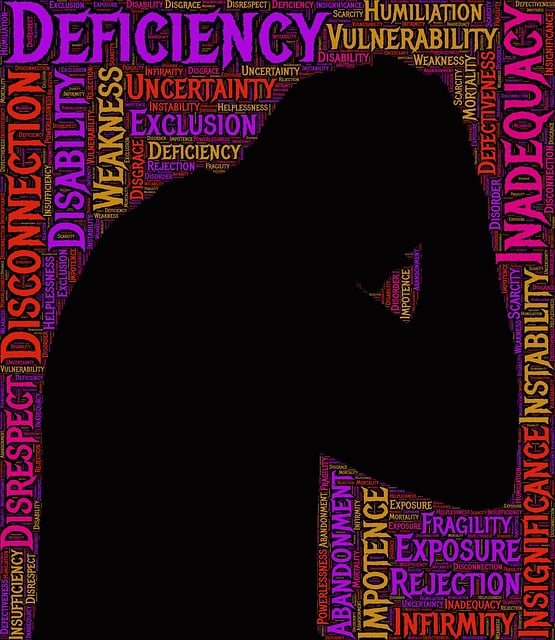Crisis Intervention Teams (CITs) offer specialized care for elderly mental health crises, incorporating tailored therapy and support networks. They collaborate with primary care providers to address physical and mental health needs, including gender identity concerns. Effective CIT training focuses on sensitivity, conflict resolution, mindfulness, and risk management, fostering inclusive environments for elders navigating gender issues. A holistic approach, emphasizing self-care and age-related considerations, enhances crisis management and promotes positive outcomes, such as improved emotional well-being and therapy tailored to individual needs, including those with diverse gender identities.
Crisis intervention team (CIT) training programs are a critical resource for supporting elderly individuals during mental health crises. As our population ages, understanding and addressing specific challenges like gender identity issues in elderly care becomes increasingly vital. This article explores CIT training, focusing on tailored approaches, essential skills, and real-world case studies. By delving into these topics, we aim to highlight the impact of effective crisis management strategies, particularly regarding therapy for elders and gender identity.
- Understanding Crisis Intervention Teams: A Vital Resource for Elderly Individuals
- The Impact of Gender Identity Issues in Elderly Care
- Tailoring Training Programs for Effective Crisis Management
- Essential Skills and Techniques for Intervening in Elderly Mental Health Crises
- Case Studies: Successful Implementation of Crisis Team Training
Understanding Crisis Intervention Teams: A Vital Resource for Elderly Individuals

Crisis Intervention Teams (CITs) are a vital resource for elderly individuals facing mental health crises. These specialized teams, often comprising of social workers, psychologists, and nurses, provide immediate support and assessment in situations ranging from depression to suicidal ideation. For seniors, who may face unique challenges such as loneliness, isolation, or cognitive decline, having access to CITs can be transformative. These teams offer not just acute intervention but also a supportive network that can facilitate long-term mental health management, incorporating tailored therapy for elders and addressing specific needs like gender identity concerns.
Incorporating self-care practices into the design of mental health education programs for elderly individuals is crucial. Given the complex interplay between physical and mental health in aging, CITs often work collaboratively with primary care providers to offer comprehensive solutions. By promoting mental well-being through these integrated approaches, depression prevention becomes a collective effort. This holistic strategy ensures that the unique needs of seniors are met, fostering not just crisis resolution but also enhanced quality of life.
The Impact of Gender Identity Issues in Elderly Care

The elderly care sector is increasingly recognizing the importance of addressing gender identity issues among its population. As society evolves and understands gender more fluidly, the needs of older adults who identify outside traditional gender norms become more apparent. Many elderly individuals struggle with their gender identity throughout their lives, often experiencing a sense of isolation or misunderstanding from healthcare providers, family members, and peers. This can lead to mental health concerns, social withdrawal, and decreased quality of life.
Training programs for crisis intervention teams must incorporate sensitivity to these issues to ensure effective care. Educating caregivers, nurses, and other professionals about gender identity and expression is key to fostering inclusive environments. By learning conflict resolution techniques and incorporating mindfulness meditation practices, mental health professionals can better support elders navigating their unique challenges. Effective risk management planning that considers gender identity can prevent potential crises and promote positive outcomes for this vulnerable population.
Tailoring Training Programs for Effective Crisis Management

Crisis intervention team training programs must be meticulously designed to address diverse needs and challenges. Effective crisis management requires tailored approaches that consider unique demographic factors, such as therapy for elders and support for individuals exploring their gender identity. By incorporating these aspects into the curriculum, training becomes more inclusive and impactful. For instance, elder care professionals need strategies to handle crises that consider age-related cognitive changes and physical limitations, while gender-affirming interventions should be integrated to support those navigating their identity.
Moreover, boosting confidence among team members is vital. Training programs can instill a sense of preparedness by teaching effective communication skills, active listening, and de-escalation techniques. These tools not only enhance crisis response but also contribute to overall mental wellness. Additionally, promoting self-care routine development for better mental health is essential, ensuring that intervention teams prioritize their own well-being. This holistic approach ultimately strengthens the team’s capacity to support others during crises.
Essential Skills and Techniques for Intervening in Elderly Mental Health Crises

Elderly mental health crises demand specialized and swift intervention due to the unique challenges faced by this demographic. Crisis intervention team (CIT) training programs play a pivotal role in equipping professionals with essential skills to navigate these delicate situations effectively. Key techniques include risk assessment, a crucial tool for mental health professionals, enabling them to swiftly evaluate and mitigate potential dangers.
Additionally, fostering self-awareness exercises within these programs is vital. Professionals must understand their own biases and emotional responses to ensure they provide unbiased, empathetic support tailored to the elderly individual’s needs, including those who may identify with diverse gender identities. Stress management workshops also contribute to the overall well-being of CIT members, allowing them to effectively respond to crises without compromising their mental health. Organizations prioritizing these training elements can foster more competent and resilient teams capable of providing high-quality care during mental health emergencies among the elderly population.
Case Studies: Successful Implementation of Crisis Team Training

In recent years, crisis intervention team (CIT) training programs have gained significant traction, with notable success stories across diverse communities. One particularly inspiring case study involves a small town that implemented CIT training for its local police force and community members. Focused on serving an aging population, this program prioritized therapy for elders suffering from mental illness, ensuring swift and effective interventions. The initiative was met with enthusiasm, leading to improved emotional well-being promotion techniques among the elderly demographic.
Another compelling example highlights the power of CIT training in addressing sensitive issues like gender identity. A progressive city integrated these considerations into their training modules, fostering inclusive communication strategies that dismantled mental illness stigma reduction efforts. This holistic approach resulted in more empathetic responses during crises, benefiting individuals from all walks of life, especially those navigating complex identities.
Crisis intervention team training programs play a pivotal role in equipping care professionals with the tools to address mental health crises among elderly individuals, especially those dealing with gender identity issues. By tailoring these programs to specific needs, we can ensure that elders receive compassionate and effective support. The case studies presented highlight successful implementations, demonstrating the profound impact of such training on improving outcomes for vulnerable populations. As we continue to navigate complex challenges in elderly care, investing in crisis team education is essential to fostering healthier, more inclusive environments.














